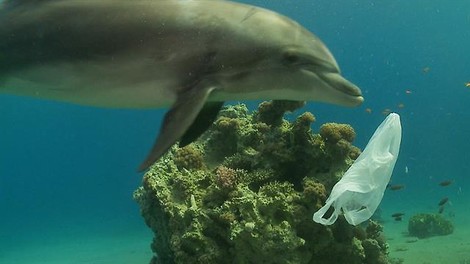Your podcast discovery platform
Curious minds select the most fascinating podcasts from around the world. Discover hand-piqd audio recommendations on your favorite topics.

piqer for: Globalization and politics Global finds Climate and Environment
Javier is a Berlin-based multimedia journalist. He completed a MA in International Journalism at City, University of London and is focused on humanitarian and conflict issues.
With experience in several countries, he's covered the refugee crisis, Turkey's coup attempt and the Kurdish conflict.
Among others, his work has been published at ABC News, Al Jazeera, Channel NewsAsia, RBB, IRIN News, El Confidencial, Público or Diario ABC.
Video: Is There A Way Out From The Plastic Epidemic?
"Eight million metric tons of plastic trash enters the sea from land every year". That's the starting sentence of National Gegraphic's video How We Can Keep Plastics Out of Our Ocean.
Plastic pollution is a global epidemic. We are – of course – responsible for it and the suffering it is causing to many species, but unless we solve it we also are going to be affected.
When thinking about pollution we normally picture factories or cars releasing great quantities of smoke. However, we never get to see the gigantic piles of plastic adrift on (and under) the oceans, so we simply don't think it is such a pressing issue.
We couldn't be more wrong.
This epidemic is one of the biggest problems of our time – and we need to react now.
National Geographic is devoting most of its June issue to plastic pollution. They don't only show what is already happening (shocking pictures of birds trapped in plastic bags, crabs using bottles as shells, etc.), but also what can be done to solve it.
There are two main things:
Creating a new plastic economy, an economy in which packages and bags aren't thrown away but reused in one way or another. Some might say: wait a minute, I already recycle. Well, it isn't yet happening at industrial scale: less than one-fifth of all plastic gets recycled globally.
Managing nutrient pollution through changes in major contributed systems, like agricultural. Governments and global organisms need to encourage – and even force – farmers and big agricultural corporations to change their production systems, incorporating sustainable, plastic-free processes.
Only in this way can we continue enjoying that little place called Earth.
